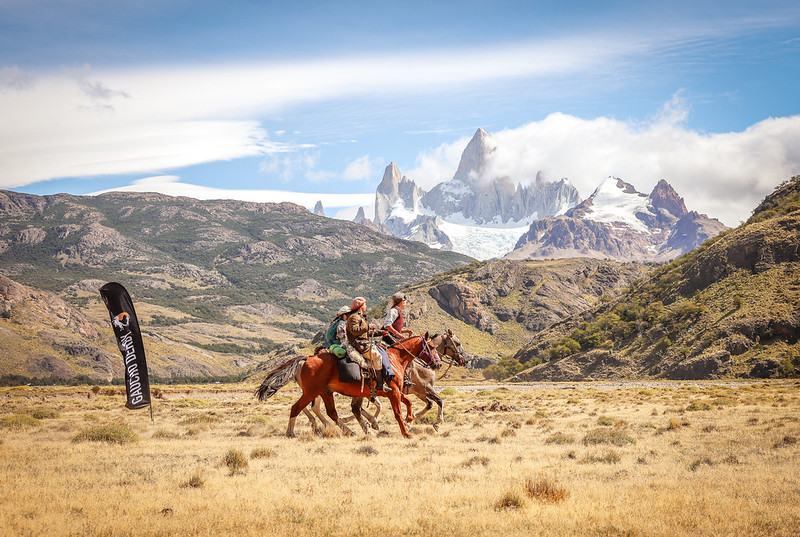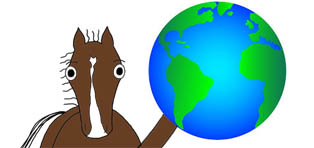21/09/2007 - FEI Press News
VICTORIAN BORDER RESTRICTIONS TO REMAIN
Border crossing restrictions prohibiting horses from New South Wales (NSW) and Queensland (QLD) entering Victoria and other Equine Influenza (EI) free states will continue, despite NSW announcing reduced horse movement restrictions for some parts of NSW and a controlled vaccination program.
Victoria’s Chief Veterinary Officer Dr Hugh Millar said the priority in Victoria was to remain horse flu free. “Border crossings will continue to be monitored 24/7 in a bid to detect any illegal activity. Serious penalties apply to those who breach border restrictions, including imprisonment and heavy fines,” he said.
In addition, Dr Millar said any horses detected entering Victoria illegally could be detained, seized and destroyed.
BUFFER ZONES AND RING VACCINATION TO BE USED TO CONTROL EQUINE INFLUENZA
Buffer zones and ring vaccination will be used to contain areas of high concentrations of equine influenza in NSW, as well as in Queensland, if required.
This move was endorsed on Monday by the National Management Group (NMG) overseeing the response to the animal disease. NMG agreed that despite more cases being discovered its view remains that with community support for the control measures the equine influenza outbreak can be contained and eradicated.
NMG was advised that a rapid increase of infected premises was explained by the fact that the disease had previously entered areas where there are a high number of horses together with a large concentration of properties such as the greater Sydney area and the Hunter Valley.
The NMG-endorsed strategy includes the establishment of buffer zones around areas of high disease prevalence and the use of ‘ring vaccination’ in conjunction with the buffer zones.
Horses vaccinated in these buffers will assist disease containment which, if effective, will establish a circle of immunity around infection areas. NMG has also agreed to the procurement of sufficient vaccine stocks for emergency purposes.
Natural geographical features such as escarpments, mountain ranges, and national parks will be used to help define buffer zones and some horses within the buffer zone will be moved out. Strict movement controls will remain in place around infected areas to ensure horses do not leave these areas.
NMG stressed that, consistent with AUSVETPLAN, vaccination was endorsed for this purpose as an animal disease control tool. It is not a quick fix for eradication and has not been endorsed for any other purpose at this time.
Compliance with standstill provisions or other state-based movement restrictions, the maintenance of good biosecurity practices, and early reporting of suspected disease remain critical elements key to current efforts to contain the disease outbreak.
In recognising effects on industry of current and proposed containment measures, NMG agreed the use of ring vaccination must be undertaken as part of a broader strategy aimed at minimizing the disease’s impact on all sectors.
Having regard to this need, NMG agreed that a framework must be urgently established that could enable further vaccinations or other interventions if required and that industry will be invited to contribute to identify priority areas.
Consistent with an earlier NMG decision, it reinforced the view that better forecasting tools be developed to track progress of the disease outbreak and that these needed to include time-lines predicting the successful conclusion of the response to the disease.
To assist planning and possible future decision making, NMG also agreed to prepare information on a scenario of equine influenza becoming established in Australia, including the implications associated with broader vaccination of the general horse population.
NMG emphasised that movement of horses from NSW, ACT and Queensland to other states and territories remains prohibited.
NMG is comprised of the Chief Executive Officers of the Commonwealth and State/Territory departments of agriculture/primary industries across Australia and also the heads of the peak bodies representing the horse industry. It is chaired by the Secretary of the Australian Government Department of Agriculture, Fisheries and Forestry, Dr Conall O’Connell.
Media contacts: Acting Australian Chief Veterinary Officer, Bob Biddle + 61 (0)419 014 817
Chief Executive Australian Racing Board, Andrew Harding + 61 (0) 417 043 233
Friday, September 21, 2007
Subscribe to:
Post Comments (Atom)
Gaucho Derby 2026 – Rider rollcall
Equestrianists.com - Full Article Holly Conyers 12th February 2026 Derby fans, buenos días. We’re back. The long wait since the nail bit...

-
Inside.fei.org 17 December 2020 The FEI Board took a series of key decisions on allocation, cancellation, and reopening of bids for FEI C...
-
Michael Pollard was one of the four winners of the 2025 Mongol Derby (Kathy Gabriel) Ca.News.yahoo.com - Full Article Annabel Grossman ...
-
BNA.bh - Full Article 17 Aug 2025 London, Aug. 17 (BNA): His Highness Shaikh Nasser bin Hamad Al Khalifa, Representative of His Majes...


No comments:
Post a Comment